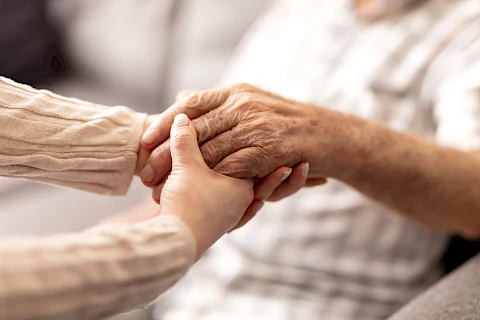
April is Parkinson's Disease Awareness Month, a time dedicated to shedding light on a condition that affects many seniors and their families. Understanding this disease is crucial for seniors, caregivers, and loved ones. With awareness and knowledge, individuals can seek early diagnosis and proper care, making a significant difference in their lives, as Senior Helpers MetroWest will outline.
What to Know About Parkinson's Disease
Parkinson's disease is a progressive neurological disorder that affects movement. It occurs when nerve cells in the brain become impaired or die, resulting in lower dopamine levels. This, in turn, causes the symptoms associated with the disease. While Parkinson's can affect anyone, it primarily occurs in seniors. Men are also more likely than women to develop this condition.
The exact cause of Parkinson's disease remains unknown, but both genetic and environmental factors play a role. Some individuals may have a family history of the disease, while others might face increased risk due to exposure to certain toxins or head injuries. Age is a significant risk factor, and as we grow older, the likelihood of developing Parkinson's increases.
Recognizing the Symptoms
Parkinson's disease symptoms in seniors vary, but they often begin with motor issues. These include tremors, stiffness, and balance problems. As the disease progresses, non-motor symptoms like sleep disturbances, depression, and mood changes may also emerge.
In the early stages, symptoms may be mild and barely noticeable. A slight tremor or a sense of stiffness may occur. However, as the disease advances, challenges become more pronounced, making daily activities difficult for seniors.
Importance of Early Diagnosis
Early diagnosis of Parkinson's offers several benefits to seniors. It allows them to start treatment that can slow disease progression and help maintain a better quality of life. Early intervention can also help manage symptoms and facilitate adaptation to lifestyle changes.
Diagnosing Parkinson's involves thorough medical evaluations and tests. Neurologists, specialists in brain disorders, play a key role in confirming the diagnosis. They may use physical examinations, patient history, and imaging tests to rule out other conditions and confirm the presence of Parkinson's.
Treatment Options for Parkinson's in Seniors
Several medications are available to manage Parkinson's symptoms in seniors. These drugs often aim to increase or substitute for dopamine, relieving motor symptoms. In addition, physical and occupational therapy can help improve mobility and daily functioning, ensuring seniors remain active and independent.
Lifestyle changes also play a significant role in managing Parkinson's in seniors. A balanced diet and regular exercise can improve overall well-being and alleviate some symptoms. Joining support groups and community resources can offer emotional support and practical advice, helping seniors and families navigate life with this condition.
Contact Senior Helpers for Custom Parkinson's Support
Understanding Parkinson's disease is essential for seniors and their families. Recognizing symptoms early and seeking diagnosis can lead to better management and a higher quality of life.
If you or a loved one notice symptoms, please seek medical advice promptly. Senior Helpers MetroWest offers specialized Parkinson's care services in Natick, Framingham, Southborough, Westborough, and Marlborough. Contact us to learn more about our senior care services.